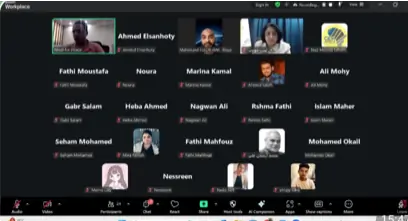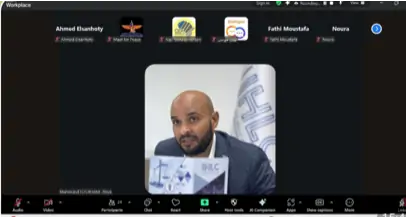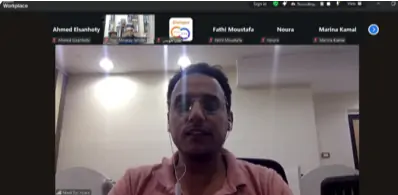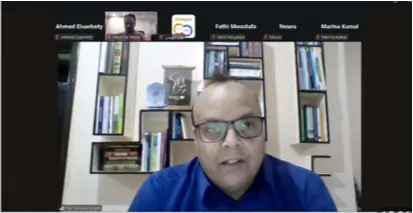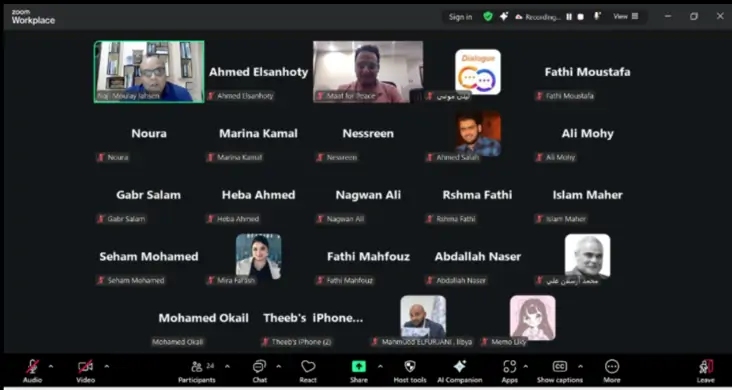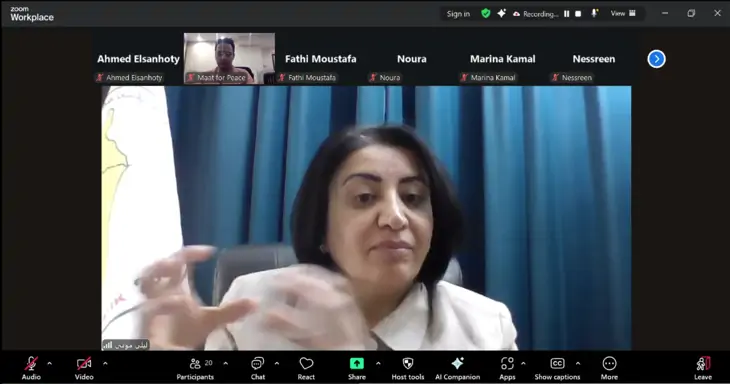On the sidelines of the World Disarmament Week, "Maat" Calls for the Activation of International Accountability to Halt the Flow of Arms Fueling War Crimes in Syria, Libya, Sudan, and Algeria
On the sidelines of the World Disarmament Week, Maat for Peace, Development, and Human Rights held a discussion titled "Impact of Arms Transfers to Armed Groups on the Rights of Marginalized Groups in the Arab Region." The event aimed to highlight the dangerous causal link between irresponsible arms transfers to armed factions and the escalation of serious violations of international humanitarian law and international human rights law against the most vulnerable groups.
Participants included human rights expert Naji Moulay Lahsen, Executive Director of the Network of the Independent Commission for Human Rights in North Africa; Dr. Laila Moussa, a representative of the Syrian Democratic Council (SDC) in Egypt; and Mahmoud Al-Farjani, a human rights activist from Libya. The session was moderated by Mohamed Mokhtar, Director of the Disarmament Unit at Maat.
During the discussion, Naji Moulay Lahsen emphasized that the continuous illicit flow of arms is the fuel that sustains serious violations. He pointed out that arms transfers to the separatist Polisario Front directly contribute to the increased and ongoing forced recruitment of children in Tindouf camps, where children as young as 12 and 13 are coerced into carrying weapons. He asserted that this act is not merely a violation but rises to the level of a crime against humanity, urging Algeria to take responsibility and immediately halt the transfer of these arms.
Dr. Laila Moussa, representing the Syrian Democratic Council, noted that the support of the Syrian interim government for armed factions in As-Sweida Governorate has led to violations of the rights of Druze and Alawite minorities. She called for a comprehensive national dialogue among Syrians to ensure that arms do not flow to armed factions in Syria and to establish political steps to end the divisions within Syrian society, addressing the concerns of various communities in regions like As-Sweida.
In contrast, Libyan human rights activist Mahmoud Al-Farjani pointed out that the issue of arms flowing from Libya to neighboring countries remains an existential challenge for security and requires a unified Libyan government to control illegal routes. He expressed particular concern about the implications of this flow, especially regarding Sudan, stating that the irresponsible diversion of arms to the Rapid Support Forces has led to a horrific escalation of sexual violence crimes against women and girls, including gang rape and sexual slavery, which are classified as war crimes.
At the conclusion of the discussion, Mohamed Mokhtar, Director of the Disarmament Unit at Maat, asserted that the session demonstrated that the international community can no longer ignore the direct link between illegal arms trade and crimes committed against vulnerable groups. He called for the activation of the International Criminal Court and United Nations mechanisms to ensure urgent accountability for sexual violence and child recruitment. He highlighted the importance of the role of Arab and African civil society in establishing a unified platform to amplify its voice in the Arms Trade Treaty for international and transparent oversight of arms transfers.
shortlink: https://maatpeace.org/en/?p=45570



